LIFE-CHANGING SERVICE
Mahatma Gandhi said, “the best way to find yourself is to lose yourself in the service of others.”
Though their experiences occurred on different continents, separated by decades, four Montana Tech alumni and faculty say that their time in the Peace Corps is highlighted not only by their commitment to serving as ambassadors of goodwill for America, but by a transformational shift in their hearts and life paths.
Dr. Charie Faught
Dr. Charie Faught says she’s willing to talk with students or look over applications to the Peace Corps. Faught served in Fiji from 1991 to 1993, teaching Chemistry, Biology, and Mathematics at a Methodist high school for girls.
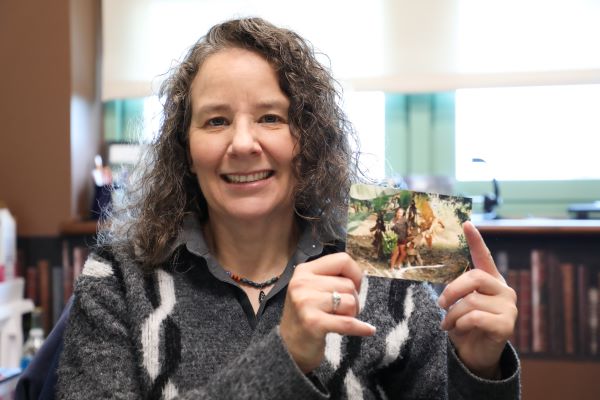
Faught said she decided to go into the Peace Corps because she knew she wanted to get a graduate degree, but she needed a break after earning a degree in Chemistry and minors in Math and French from the University of Montana.
Faught originally had Côte d’Ivoire in mind, where she hoped her French would be more of an asset, but her first chance to serve clashed with finals week at UM. The Peace Corps eventually called back and offered her an assignment in Fiji.
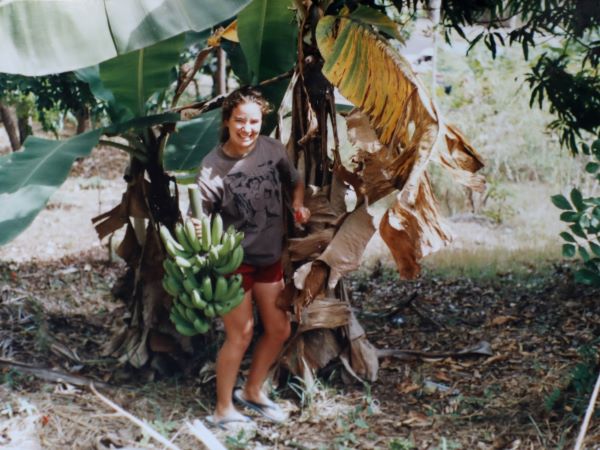
During the first three months of teacher and language training, Faught and her fellow volunteers visited a remote island where Peace Corps members were serving, and she asked if she could avoid the primitive conditions.
Her request was honored, and she was assigned to the city of Lautoka, which is about the size of Butte.
She lived in the boarding school’s compound, which had running hot water and electricity. Faught’s Peace Corps pals who served in more rural areas enjoyed using the amenities when they visited.
Faught’s time in the Peace Corps changed her life.
“I did not think I was going to set the world on fire,” Faught said. “I did want to make a difference. It probably impacted me more than the people I interacted with.”
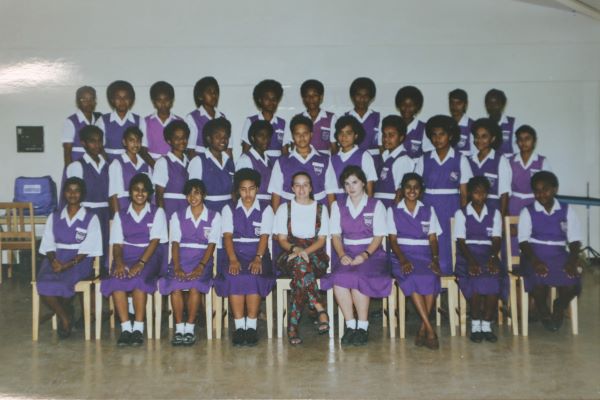
For the first time, Faught lived in a community as a minority. She saw poverty. She learned to live in a place that moved slower and was less schedule-oriented. By the end of her term of service, she knew how to soak in the value of a day spent sitting in the shade of a mango tree, eating its juicy fruit.
“I grew up a lot,” Faught said. “You learn to slow down. You have to spend time by yourself and get to know yourself. One of my thoughts when I was in the Peace Corps was that you can’t run away from yourself. It was very therapeutic.”
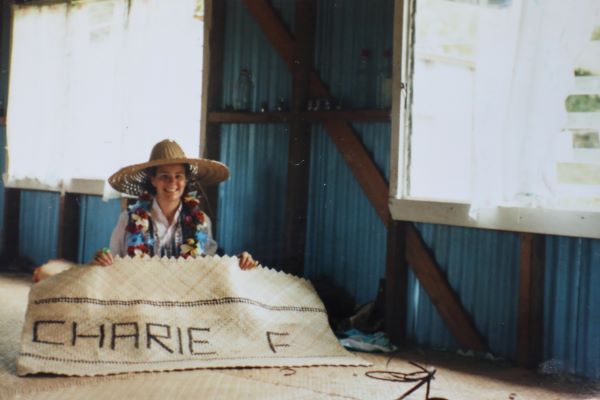
Faught went on to get a master’s in Health Administration from Tulane University and a Ph.D. in Human Services specializing in Health Care Administration from Capella University. It took her 12 years to work her way back to Montana. She’s been at Montana Tech since 2007. Her time in Fiji was the beginning of a life of travel.
“Travel when you are young and have a chance,” Faught recommends.
The Peace Corps takes extra care to send people to safe areas, and send volunteers to train in groups with a support network.
“The skills you learn are skills you will use the rest of your life,” Faught noted, emphasizing that she learned
to teach from her time in the Peace Corps, more so than becoming a subject matter expert through a Ph.D.
She also suggests that prospects weigh their commitment to service before they accept an assignment.
“It’s not for the faint of heart,” Faught said.
Some people have asked Faught why she chose to serve in a foreign country instead of just serving in
America.
“Serving in Fiji doesn’t mean our communities in America aren’t important,” Faught said. “Diplomacy is important for our country’s well-being in the world.”
Clay Thomas
Former Oredigger offensive lineman Clay Thomas (Environmental Engineering, ’16) is currently in the middle of a term of service in Luapula Province in Zambia.
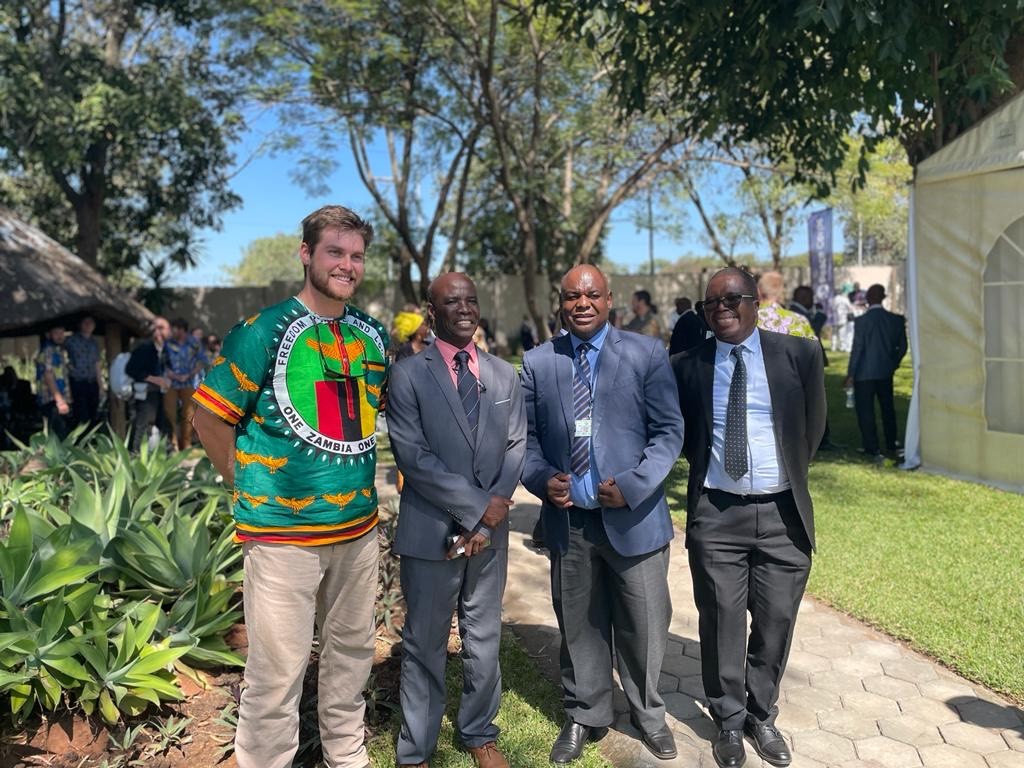
“It is a very intense, rural experience,” Thomas said. “There is no running water or electricity. The people are
great and so very friendly, peaceful, and welcoming. My job functions are basically as a forestry extension
agent, and my main objective is to increase, conserve, and protect the trees in Zambia to fight off the rampant deforestation occurring. This is done by offering up other means of income generation and food security tactics such as agroforestry techniques, modern crop management, and beekeeping, among other things.”
The tasks align well with Thomas’s Environmental Engineering degree. He came to Montana Tech from
Long Beach, California, to play football on a scholarship.
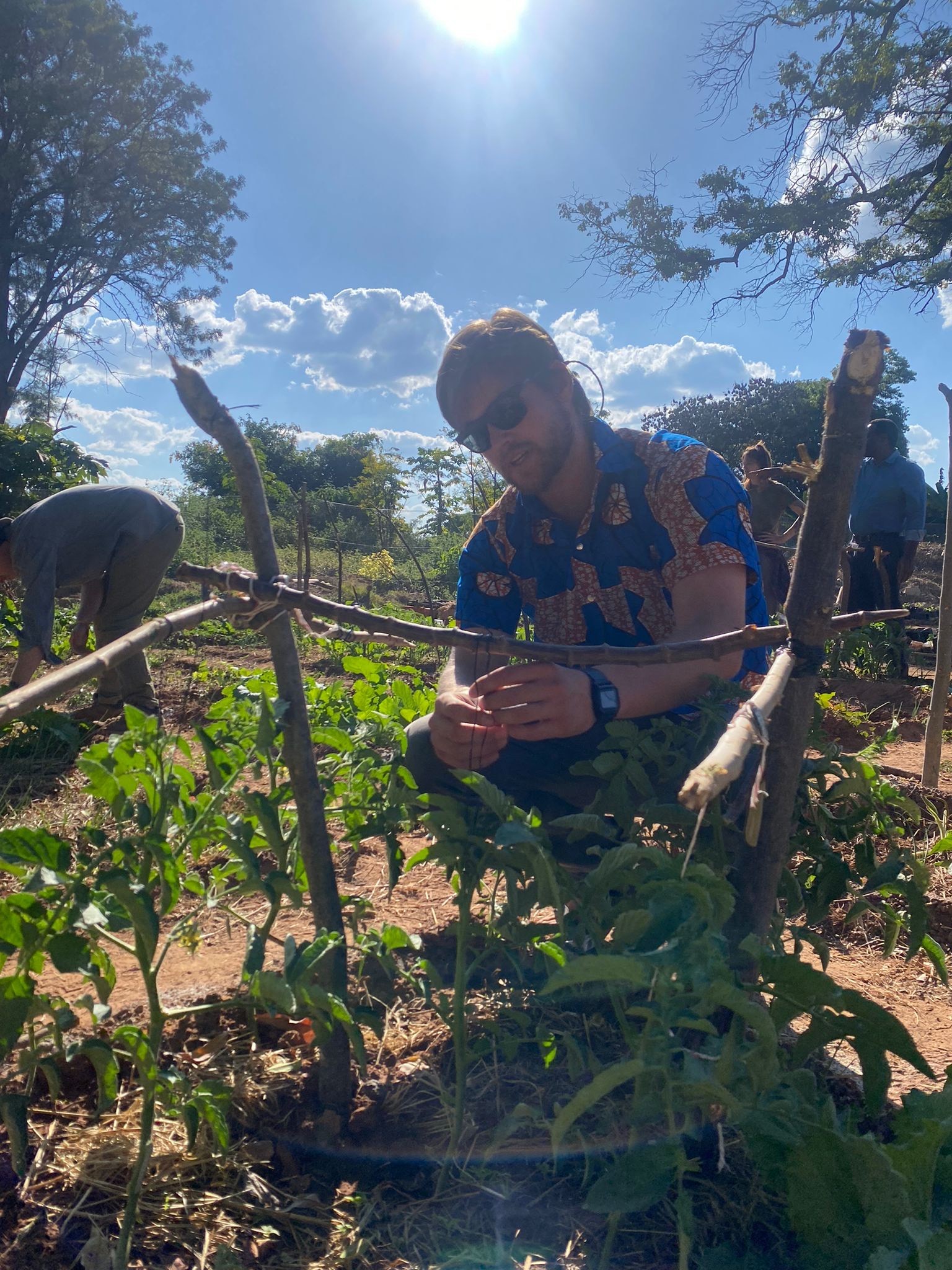
“I have always loved the environment and nature and wanted to pursue a program in which I could work toward environmental stewardship and sustainability,” Thomas said. “I have always been mechanically inclined and good at math and science and believed this was the best way to have the greatest impact.”
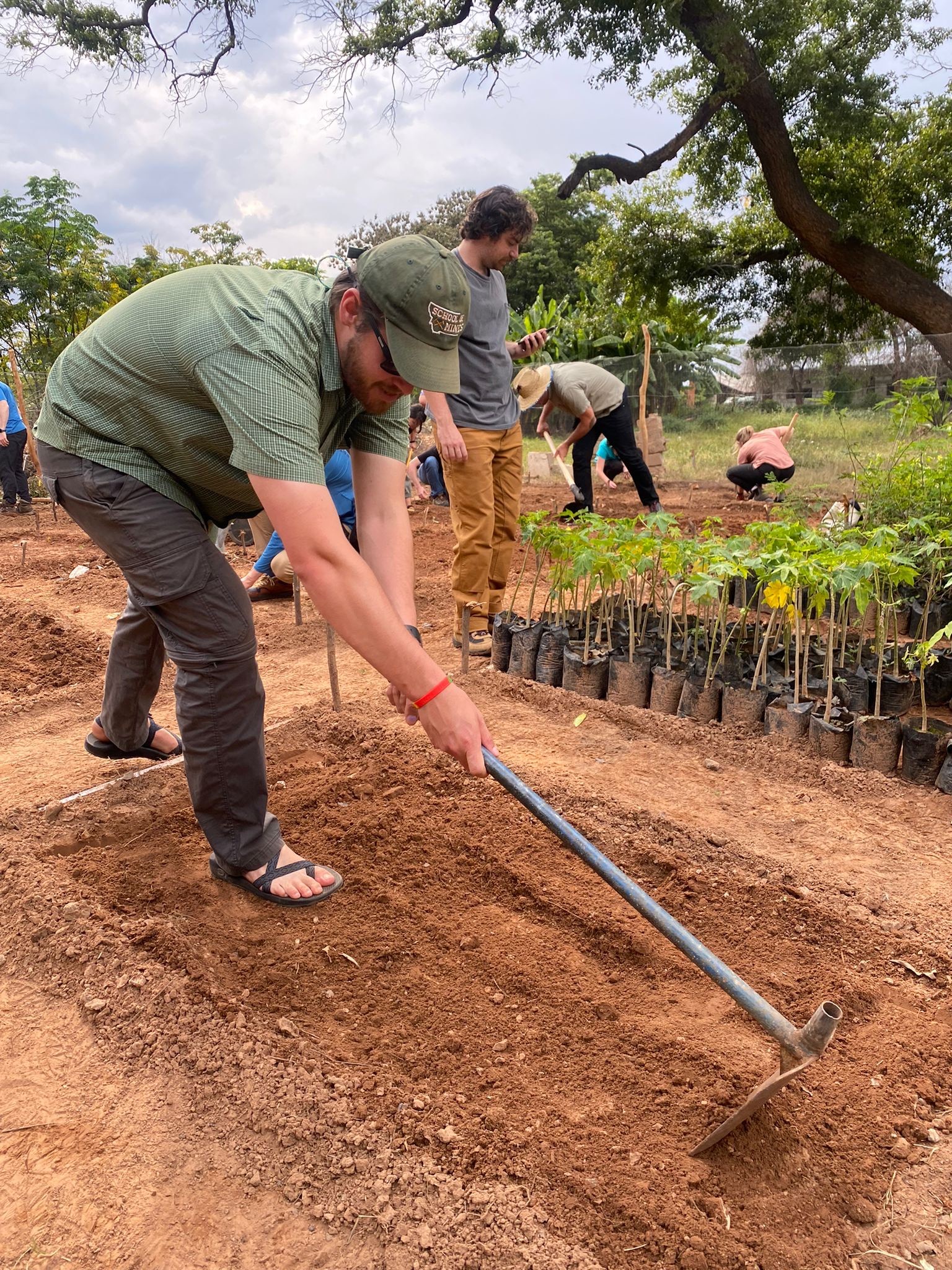
Thomas said his time at Montana Tech taught him to work hard and create realistic solutions to problems. He then put those skills to work in the Peace Corps.
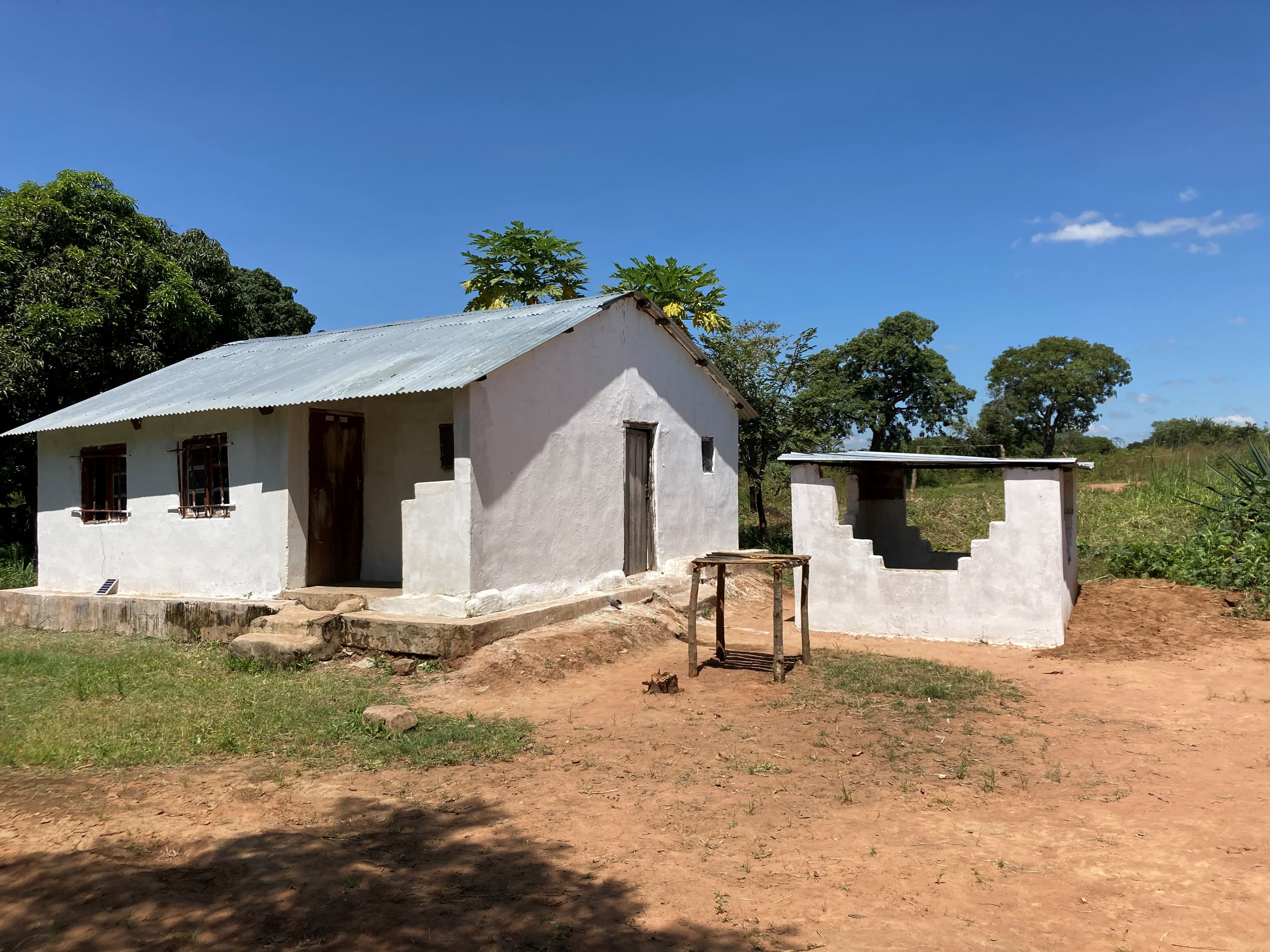
“It is a tough job but worth it,” Thomas said. “People will never be the same after their experience. They will change for the better, and become stronger, empathetic, independent, and smarter. My eyes have been opened about my perception of the world. I have been surprised by how adaptive and flexible I can be. It’s important to
know these things about yourself because I can do anything once I am back in America. I have so much
confidence in myself and my abilities.”
Dr. Stella Capoccia
Respect for host nations is something that Dr. Stella Capoccia tries to emphasize in her classroom each semester when she gives a presentation on her time in the Peace Corps, from 1998 to 2000. She stresses that American volunteers who want to “save” the developing world can do lots of damage. She tells students how her service required integration into a rural East African community in Kenya.
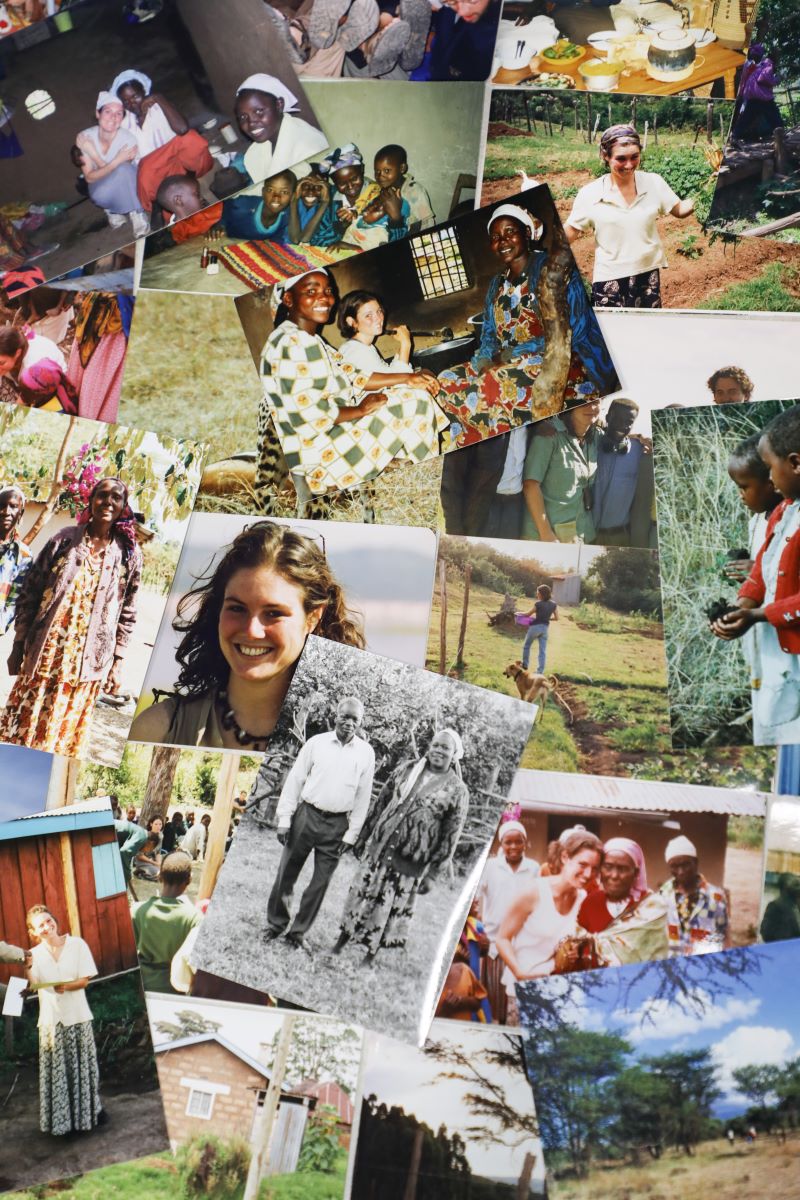
Capoccia is the second generation of her family to join the Peace Corps. Her parents met while serving.
“It seemed like a logical thing to do after college,” Capoccia
remembers.
Capoccia worked as a forester in a skirt, dressing as East African women are expected to. She lived in a small primitive home with no electricity or running water. She had a water catchment system that she could draw from most of the time, but she also used a donkey to haul water to her home. She quickly learned to
make the most of every drop.
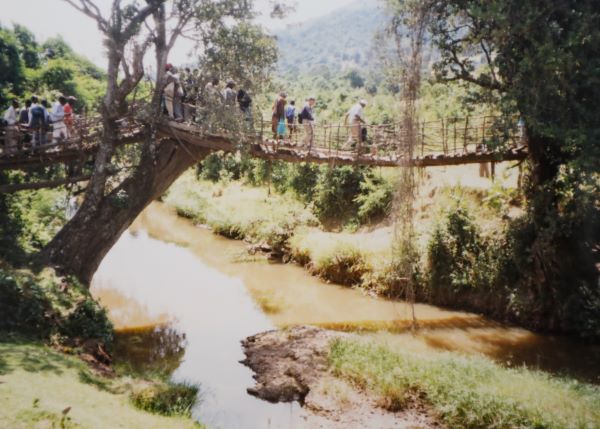
“I wanted running water more than I wanted electricity. You use water countless times before you get rid of it,” Capoccia said.“And then you would throw it on the garden.”
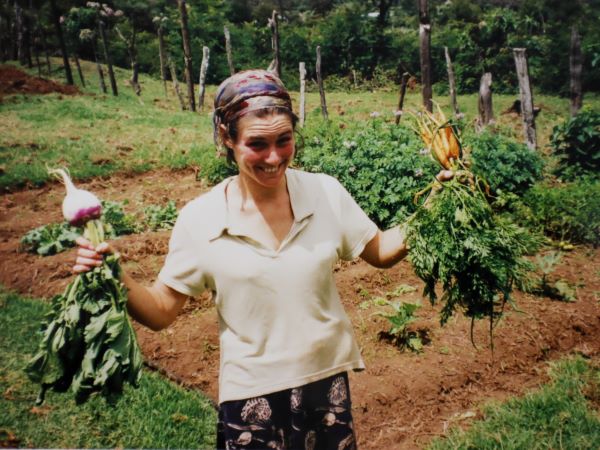
She would use clean water for a final rinse of clothes, dishes, or bathing. Dirty water was used to soak dirty laundry, clean food like potatoes, water animals, or put in her garden. If she wanted warm water, she had to heat it with a fire.
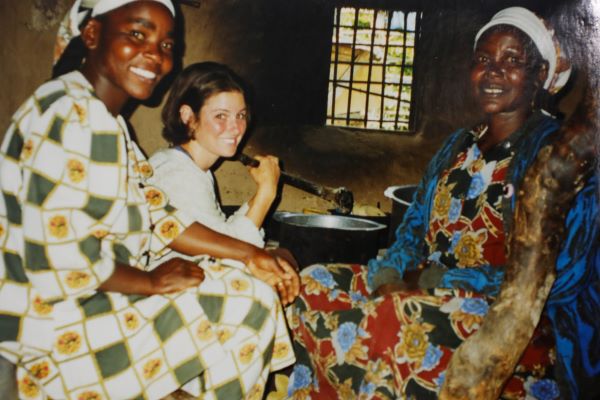
“Everything you bring into your house has a purpose,” Capoccia said. “I learned to be more sustainable in my time there.”
Capoccia cooked in clay pots. She grew tomatoes, turnips, carrots, and potatoes. If she wanted to bake with flour, it was a three-day process to get it. She’d buy it one day, take it to the mill the next, and finally bring it home to cook with. Soon her American habits, like eating a jar of peanut butter, were viewed with a more critical lens. After all, what happens to the jar once the delicious spread has run out?
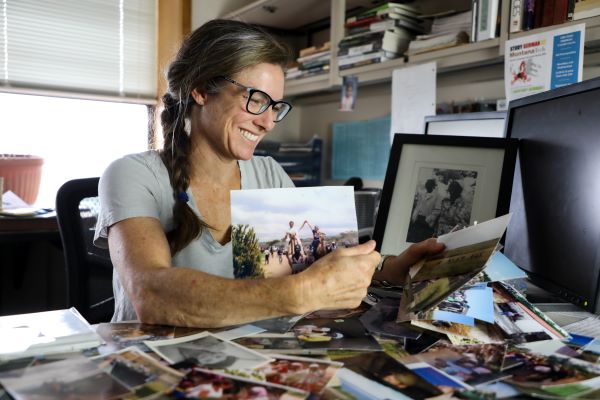
“There’s no waste service there,” Capoccia said. “As an environmental volunteer, I generated more trash than anyone.”
Capoccia found that people would take her trash and turn it into treasure. She traded items for things she needed: carrots for avocados and other garden bounty for crops like wheat and oranges that required more space for growing than she had.
By the end of Capoccia’s term, she was bartering for most of her household needs. She also had become accustomed to sitting with her boredom, something that people in developed nations often struggle with, as electrical distractions are widely available.
While most people might want to rip a package open right when they get it, Capoccia saved packages for slow days when she had time to savor the mail. It’s a lesson she brought back to the U.S. When the pandemic struck in 2020, she found herself perfectly okay with finding things to do during the lockdown. Peace Corps taught her to find ways to exercise and entertain herself with very little or no infrastructure or entertainment devices.
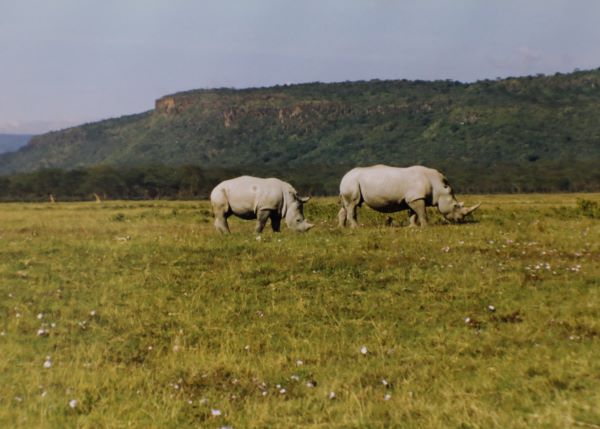
Some of that exercise and entertainment consisted of walking for three hours with friends to see the wildlife on the Maasai Mara, the northern part of the Serengeti, where zebras, wildebeest, elephants, and giraffes roam. Trips like those were done on time off. In her regular workday, Capoccia focused on planting trees. Capoccia’s work in the village can still be seen there, decades later, from outer space in photos compiled on Google Earth. The town had a little shopping center, called a hotelie. The businesses were in primitive buildings with rusted tin roofs. Mamas of the village would sit under a single shade tree, selling their wares. Capoccia worked to gather up money from the local businesses to plant approximately 50 native trees around the market. They were protected from livestock and have grown to maturity. The money also paid for a sign that read, “Welcome to our market.
Please enjoy the shade.”
Every Peace Corps member who completes their term of service is given a readjustment allowance based on the time spent in service. Capoccia used hers to go around the U.S. with a good friend she met in the Peace Corps, Tracy. She and Tracy came through Butte and fell in love with the area. Tracy returned to Butte to get her master’s degree at Montana Tech and Capoccia got a job with the Montana Department of Fish, Wildlife, & Parks
in Helena. The two both married Tech alumni, who were also best friends.
Capoccia and her husband, Bill Henne, traveled back to Kenya for a year for Capoccia’s Ph.D. work. The couple returned to Butte for Bill to complete his master’s degree at Tech and Capoccia was hired as a Biology Professor.
In 2017, Tracy passed away from breast cancer, but the couple is still close friends with her husband, Steve, and his new wife Janice, and Capoccia gets to tell Tracy’s children the stories of their adventurous mother.
“The whole trajectory of my life changed after the Peace Corps— it’s part of the reason I’m at Montana Tech,” Capoccia said.
Part of the Peace Corps’ mission is to commit to sharing the experience and the organization’s mission with others. It’s a lifelong objective. So, every year, Capoccia dedicates a lecture
to her time in the Peace Corps, and also works with interested
students to perfect their applications. She highly recommends
that students consider serving.
“There is the before, the during, and the after,” Capoccia says. “It
will blow the ceiling off your life.”
Eric Hull
Eric Hull (M.S. Environmental Engineering ’17, B.S. Environmental Engineering ’16) completed a 27-month term of service with the Peace Corps in Tanzania.
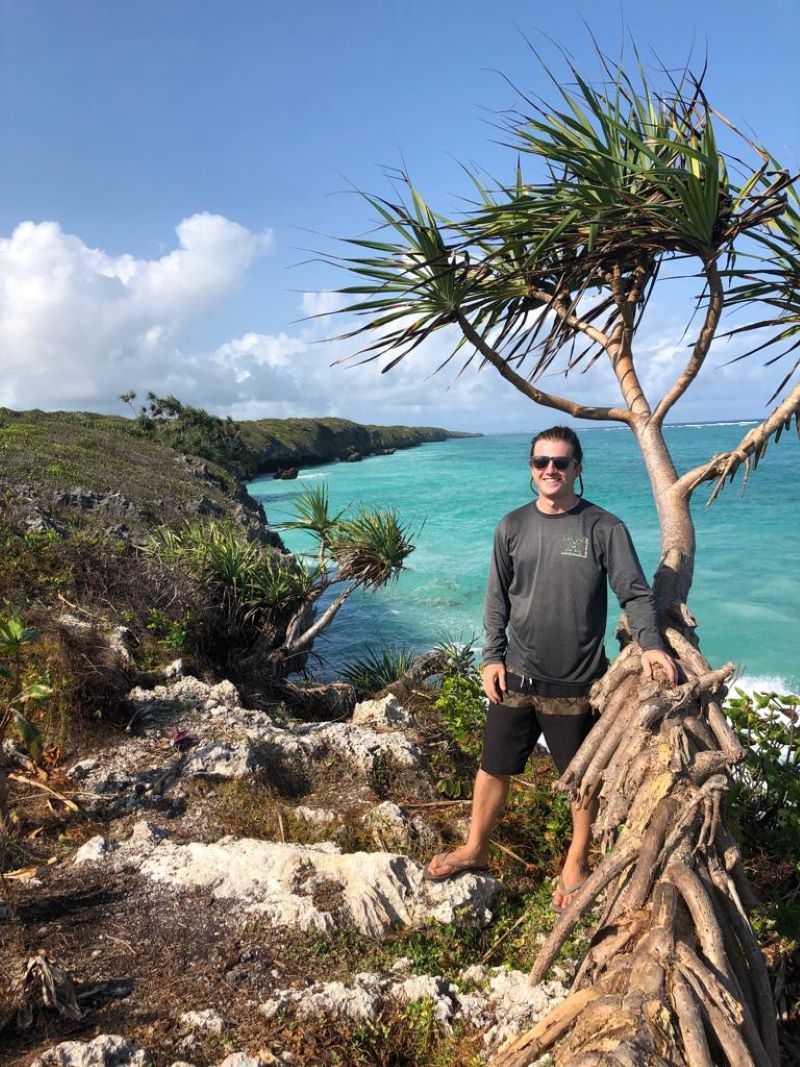
Hull says Professor Stella Capoccia sparked his interest in the program. “I hadn’t thought much of it until Intro to Ecology and Biodiversity with Stella Capoccia, where she gives an overview of her Peace Corps experience every semester,” Hull said. “I also TA’d for her one semester and got a second dose of her presentation. It was in the back of my mind throughout school. I always thought it was such a cool life experience, something
very different and challenging.”
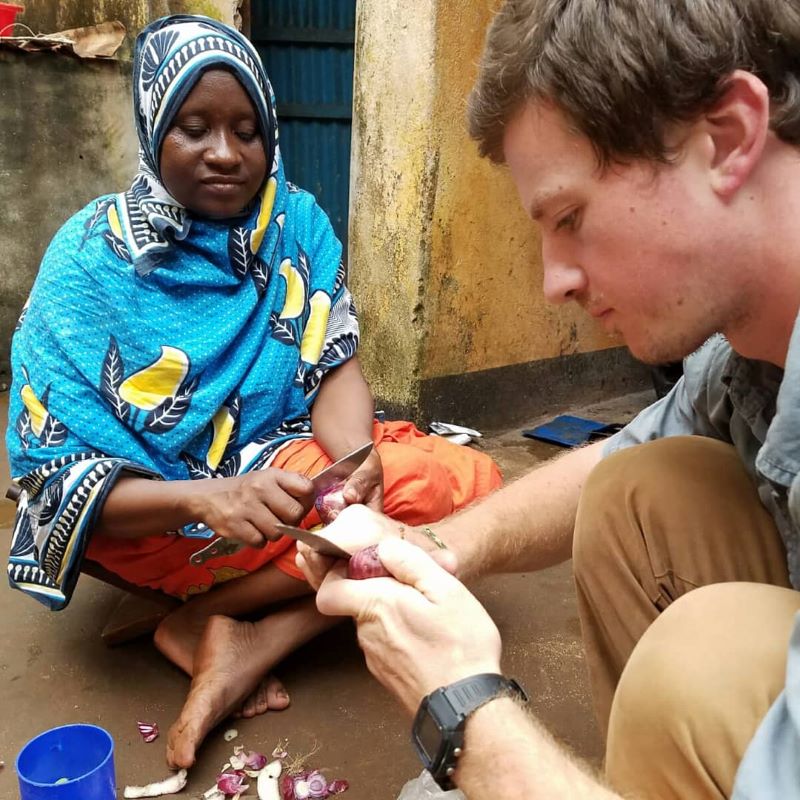
The Peace Corps is selective in choosing people for service. Nations have to request help for a specific task to be completed, and volunteers must have a skill set to meet that request for service.
“I applied to the Peace Corps twice during my bachelor’s degree—once six months before graduation and again shortly before graduation,” Hull said. “I was not accepted either time. I then didn’t want to move home without a job, so I asked Dr. Kumar Ganesan if I could stay on and get my master’s degree. That went well, so I reapplied midway through and was accepted on my third try.”
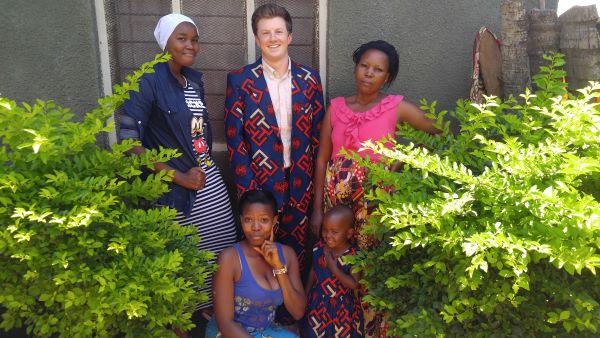
Hull’s time in Tanzania included three months with a host family to learn Swahili, attend teacher training, and student teaching at a local elementary school. Hull was assigned to Makunduchi Secondary School, located in a small village on the southeastern coast of the island of Zanzibar. He taught math and science, subjects with a high demand for teachers in Tanzania.
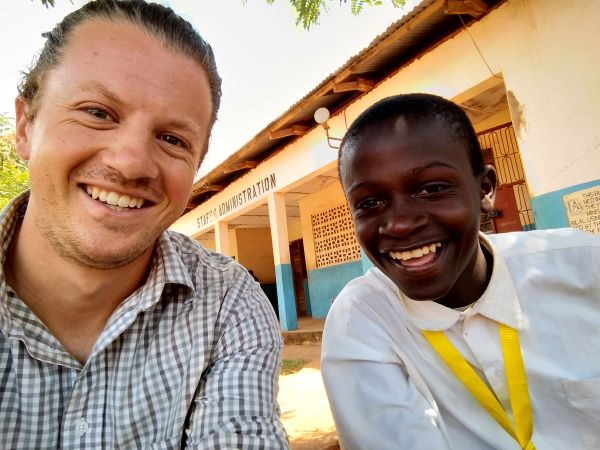
“We were supposed to be teaching in English, but I’d have to teach mostly in Swahili to get topics across,” Hull said. “I tutored English in my free time to anyone willing to learn.”
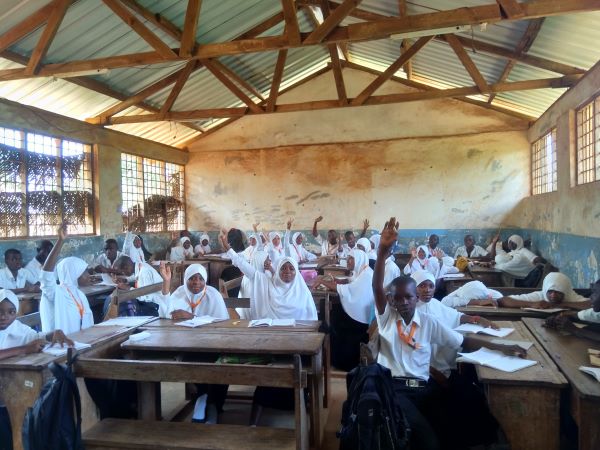
Hull lived in a home with a small courtyard and a separate bathroom/kitchen building.
“I was fortunate to have electricity and running water when the school turned on a well pump and filled a water tower at the school,” Hull said. “I had to keep water stored in barrels for whenever the tank at the school ran dry between semi-regular fillings.”
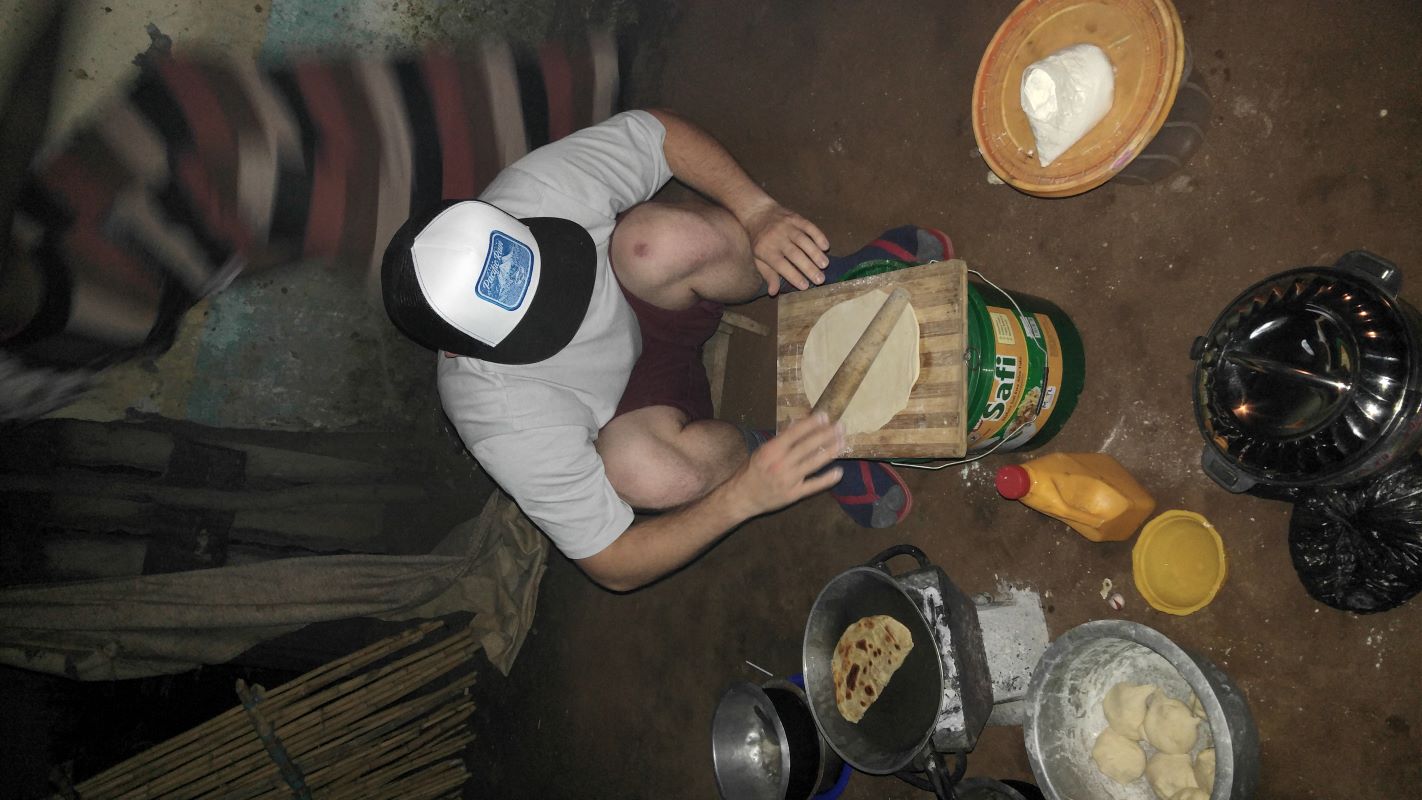
Hull adopted a kitten he found on a bike ride home from fishing one day. She kept the house clear of pests, and the volunteer who came after Hull adopted the cat.
“I had a regular teaching schedule with two or three classes a day and a prep period,” Hull said. “Lunch involved mothers of students bringing baked and fried goods for purchase every day. I had ‘summers’ and holidays off to travel around the country, meet with friends, and go on adventures. I stayed abroad during my entire 27 months of service but did travel to other African countries and even some countries in the Middle East.”
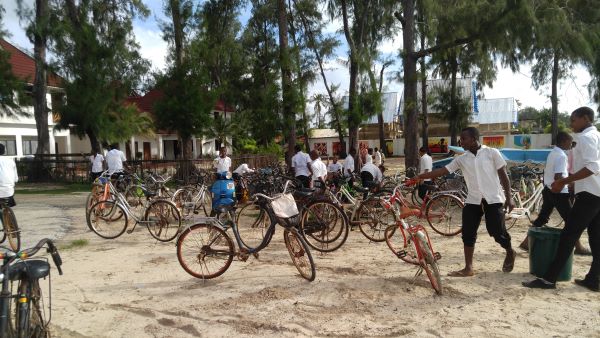
“Nothing prepares you for the Peace Corps,” Hull said. “It takes a certain person to persevere for over two years in a foreign country. You need to be open-minded and comfortable being in very uncomfortable situations.”
Hull would recommend Peace Corps to other students, but noted that it’s not for everyone. The Peace Corps reports that in 2018, 11.6 percent of its members terminated their service early.
“There isn’t a stereotypical person that does well over anyone else,” Hull said. “Some people had never been outside the U.S. and did amazing. Some people had traveled worldwide and hated it, resigning after a couple of months.”
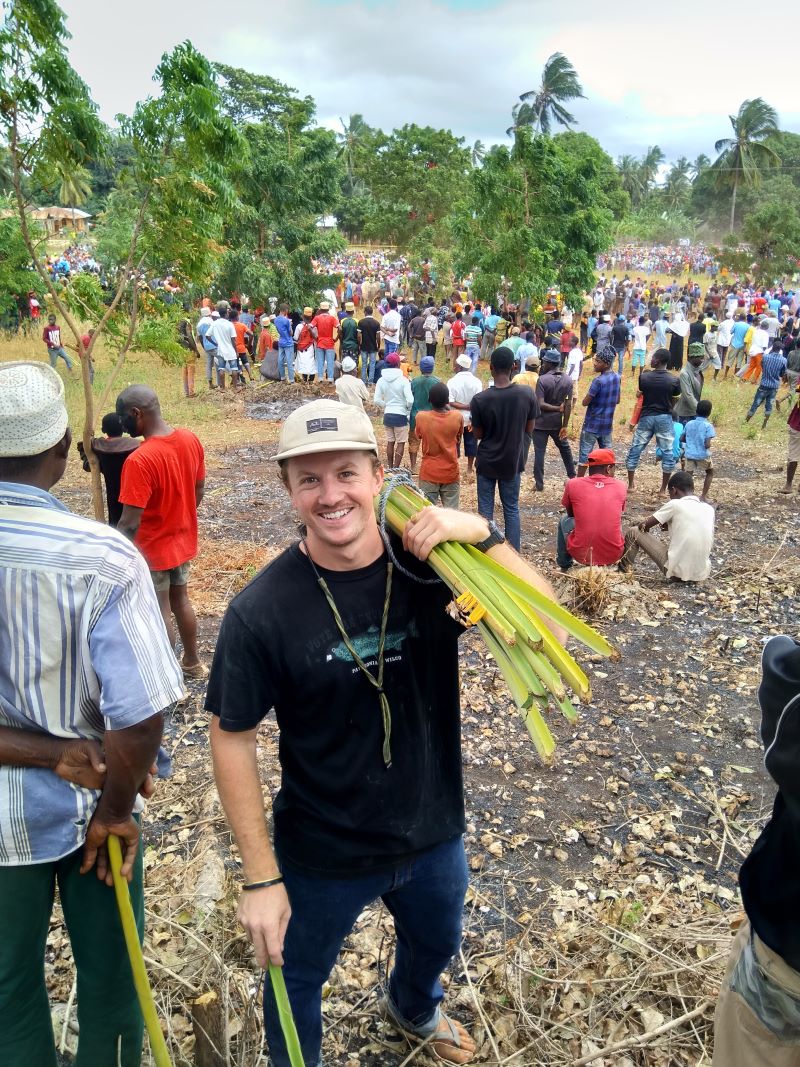
Peace Corps members are paid a local salary, meaning the term of service can be a financial sacrifice. Hull said it could put you a couple of years behind your peers in building a career or buying a home, but overall, the experience was worth it.
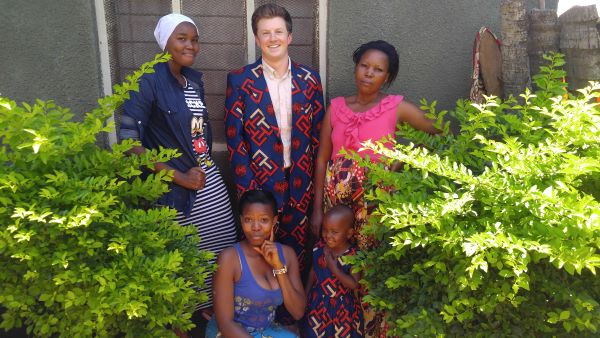
“It in no way adversely affected my job prospects,” Hull said. “I interviewed and was offered a job the day after I returned to the States. My experience elevated my résumé to the top and gave me a competitive edge.”
“Often, the volunteer will get more out of the experience than the host community,” Hull said. “This isn’t the ideal form of aiding developing nations, but to some host countries, we may be the only Americans they will ever meet. We must show the host nations the utmost respect and be gracious about everything they have to offer.”
For more information about service in the Peace Corps, visit https://www.peacecorps.gov/.